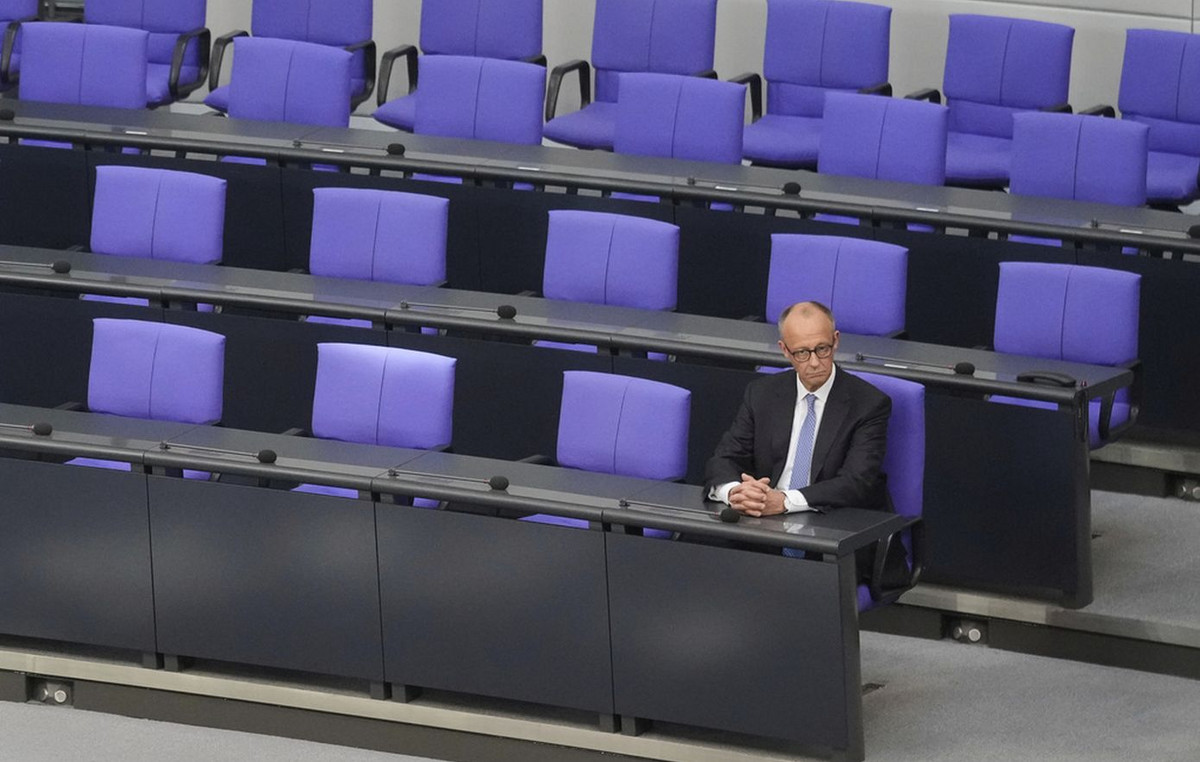Bada poses in front of the entrance to his hut, she with five children. The serious expression, almost frowning, does not indicate pain or disappointment: it is the proud look of someone who looks you straight in the eyes, head held high, posture erect, and feels that despite a thousand difficulties, he is living his life on the right side.
Bada tells us about it in simple words. When Gambaruthe city in the north east of Nigeria where she lived, was attacked, she had no doubts: she took what she had and fled. But she, together with her belongings, brought with her a much more precious load: five very young children, found alone in the street crying, their parents missing, probably killed. “I didn’t think about the difficulties, I didn’t ask myself if I would be able to feed them, I’m a religious person, and I did what was right.”
Five girls and boys alone. Minors who are unaccompanied or separated from their parents, as stated
in humanitarian reporting. One of the most vulnerable categories in need of help. Separate from them
loved ones, they have lost the care and protection of their families. I am at risk of abuse and
exploitation. They are forced to drop out of school and not follow an educational path and
training appropriate to their age. They must face traumas that are destined to leave a mark on theirs
psyche. They are often forced to take on adult responsibilities, such as caring for
younger sisters and brothers.
When reunification with the family of origin is not possible, find a family of
hospitality it can mean making it, moving forward, surviving. This was the case for the five
children that Bada welcomed without hesitation, raising them together with his two children. Like children.
The humanitarian organization I work for, Intersos, with the support of the European Union, assists them and accompanies them in life. By hosting them in safe spaces where, even within a refugee camp, children can play, carry out educational activities, but above all return to living their age, receiving the psychological support they need to overcome the traumas they have experienced. Providing material assistance, with the distribution of food kits, clothing kits and household and personal hygiene products. And then another apparently small, but decisive, achievement: legal assistance, starting with the delivery of birth certificates, which transform those ghost children into citizens.
But let’s go back to the story of Bada and her little ones. Together they fled all the way to Chad, land
of origin of the woman (it was her Nigerian husband, a fish transporter, who disappeared since
time due to natural causes, to take it across the border). A difficult journey: hundreds of kilometers
to get around the Lake Chad basin, a stronghold of the armed groups, and get to the other shore,
safe. Many years have passed now. Everything changed. In Gambaru, a border town and
market square (a bridge separates it from the Cameroonian Fotokol), there are signs of the conflict
still evident: in the buildings destroyed and never rebuilt after the occupation by the groups
armed in 2014 and the counter-offensive of the Nigerian army in the following months, in the immense
displaced camps that continue to welcome those fleeing the violence, in businesses that have never returned
to the freedom and well-being of before the war.
Let’s stop for a moment to explain clearly where we are. Lake Chadone of the biggest
of Africa, although in the last decades of the 20th century, due to water exploitation and
climate change, has lost around 80% of its water. We are in one of the most places
unsure of the world, in the heart of what the media has often defined as «the Boko crisis
Haram”, from the name of the best known of the armed opposition groups active in this area, in that
which for over ten years was perhaps the main epicenter of destabilization in the area
sub-Saharan. In Chad alone, 7 million people are in need of humanitarian aid this year,
almost a million more than last year. One million nine hundred thousand people live
a condition of serious food insecurity, around 700 thousand more than last year.
If before there was some normality, now there is no trace of it: a prolonged crisis,
apparently without an outlet. Displaced people camps which, year after year, become the residence of one
new life. And resilience strategies: the strength of those who adapt to circumstances. The new life Bada
is in a field near Bol, the main urban center of the Chadian lake region, where
with the mentality of an entrepreneur she takes care of her seven children. She makes a living
helping fishermen clean and smoke fish. The clarity of the carpets and objects in the large space
courtyard in front of his hut are the signs of dignified poverty. In the future she would like
being able to restart a commercial activity, buy a pirogue and then rent it to those who go fishing
in the dangerous waters of the lake, where the risk of armed attacks is still high. She is 54 years old.
Source: Vanity Fair
I’m Susan Karen, a professional writer and editor at World Stock Market. I specialize in Entertainment news, writing stories that keep readers informed on all the latest developments in the industry. With over five years of experience in creating engaging content and copywriting for various media outlets, I have grown to become an invaluable asset to any team.







